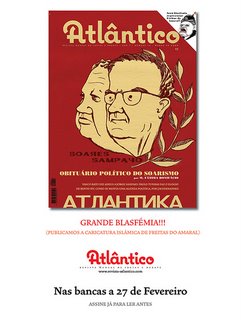Patrick J. Buchanan"You can always tell when the War Party wants a new war. They will invariably trot out the Argumentum ad Hitlerum.
Before the 1991 Gulf War, Saddam had become "the Hitler of Arabia," though he had only conquered a sandbox half the size of Denmark. Milosevic then became the "Hitler of the Balkans," though he had lost Slovenia, Croatia, and Macedonia, was struggling to hold Bosnia and Kosovo, and had defeated no one.
Comes now the new Hitler.
"This is 1935, and Mahmoud Ahmadinejad is as close to Adolf Hitler as we've seen," said Newt Gingrich to a startled editor at Human Events. "We now know who they are – the question is who are we. Are we Baldwin or Churchill?" "In 1935 … Adolf Hitler and Benito Mussolini intimidated the democracies," Newt plunged ahead. "The question is who is going to intimidate who." Yes, a little learning can be a dangerous thing.
A few facts. First, when Hitler violated the Versailles Treaty by announcing rearmament in March 1935, Baldwin was not in power. Second, Prime Minister Ramsay MacDonald quickly met with Il Duce to form the Stresa Front – against Hitler. Third, when Mussolini invaded Abyssinia in October 1935, Baldwin imposed sanctions.
But Churchill did not wholly approve.
Abyssinia, said Churchill, is a "wild land of tyranny, slavery, and tribal war. … No one can keep up the pretense that Abyssinia is a fit, worthy, and equal member of a league of civilized nations."
As late as 1938, Churchill was still proclaiming the greatness of Il Duce: "It would be a dangerous folly for the British people to underrate the enduring position in world history which Mussolini will hold; or the amazing qualities of courage, comprehension, self-control, and perseverance which he exemplifies."
But back to the new Hitler.
The Iranians, said Newt, "have been proactively at war with us since 1979." We must now prepare to invade and occupy Iran, and identify a "network of Iranians prepared to run their … country" after we take the place over.
"I wake up every morning thinking we could lose two major cities today and have the equivalent of the second Holocaust by nuclear weapons – this morning."
What about diplomacy?
"We should say to the Europeans that there is no diplomatic solution that is imaginable that is going to solve this problem." Newt's reasoning: War is inevitable – the longer we wait, the graver the risk. Let's get it over with. Bismarck called this committing suicide out of fear of death.
My own sense of this astonishing interview is that Newt is trying to get to the right of John McCain on Iran and cast himself – drum roll, please – as the Churchill of our generation.
But are the comparisons of Ahmadinejad with Hitler and Iran with the Third Reich, let alone Newt with Churchill, instructive? Or are they ludicrous?
Again, a few facts. In 1942, Hitler's armies dominated Europe from the Pyrenees to the Urals. Ahmadinejad is the president of a nation whose air and naval forces would be toasted in hours by the United States. Iran has missiles that can hit Israel, but no nuclear warheads. Israel could put scores of atom bombs on Iran. The United States, without losing a plane, could make the country uninhabitable with one B-2 flyover and a few MX and Trident missiles.
Why would Ayatollah Khamenei, who has far more power than Ahmadinejad, permit him to ignite a war that could mean the end of their revolution and country? And if we were not intimidated by a USSR with thousands of nuclear warheads targeted on us, why should Ahmadinejad cause Newt to break out in cold sweats at night?
Currently, the "nuclear program" of Iran consists of trying to run uranium hexafluoride gas through a few centrifuges. There is no hard evidence Iran is within three years of producing enough highly enriched uranium for one bomb.
And if Iran has been at war with us since 1979, why has it done so much less damage than Gadhafi, who blew up that discotheque in Berlin with our soldiers inside and massacred those American kids on Pan Am 103? Diplomacy worked with Gadhafi. Why not try it with Iran?
Yet Newt and the War Party appear to be pushing against an open door. A Fox News poll finds Iran has replaced North Korea as the nation Americans believe is our greatest immediate danger. And a Washington Post poll finds 56 percent of Americans backing military action to ensure Iran does not acquire a nuclear weapon.
Instead of whining about how they were misled into Iraq, why don't Democrats try to stop this new war before it starts? They can begin by introducing a resolution in Congress denying Bush authority to launch any preventive war on Iran, unless Congress first declares war on Iran.
Isn't that what the Constitution says?
Before we go to war, let's have a debate on whether we need to go to war. "
PS: Sempre gostava de saber, perante um qualquer risco interno de caida no comunismo, analogo ao que se passou depois da Primeira Grande Guerra em todos os países europeus (com grandes culpas para a entrada no conflito por parte de um genuino idealista como Woodrow Wilson), quanto desses novos extremistas pela democracia em massa como Newt, correriam atrás de personalidades e políticas como o Duce.
 Uma Direita Liberal, por Rui Ramos. Na Atlântico.
Uma Direita Liberal, por Rui Ramos. Na Atlântico.